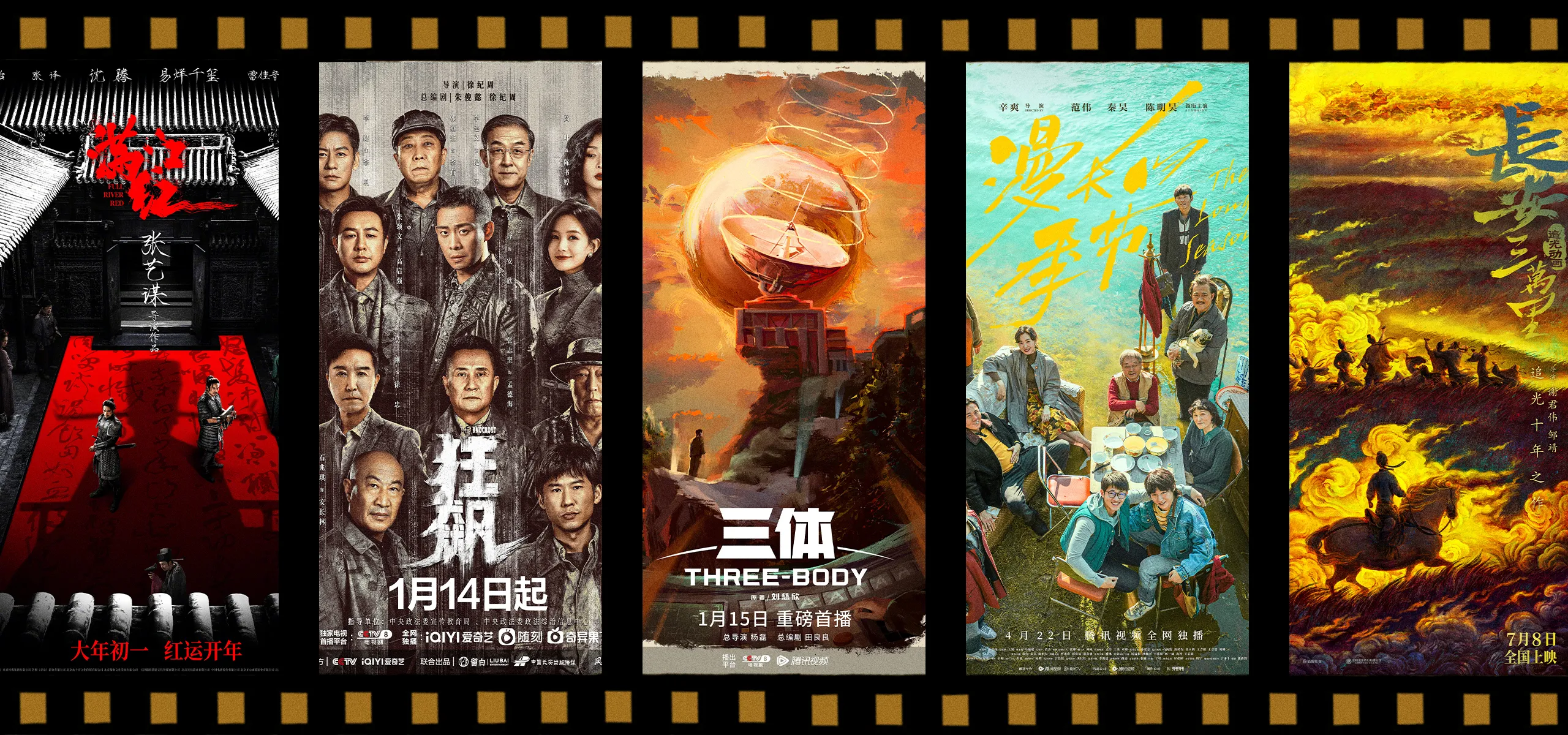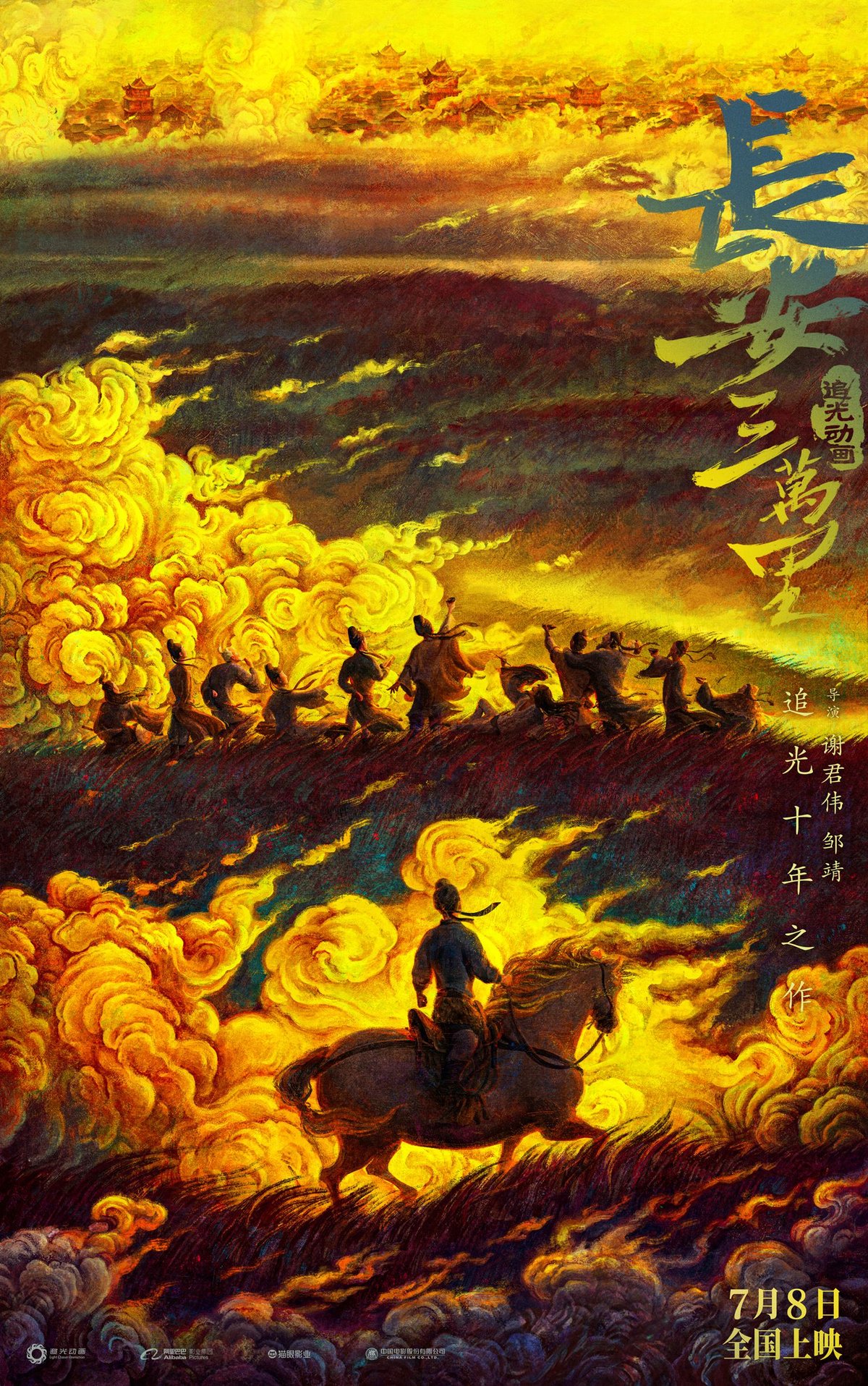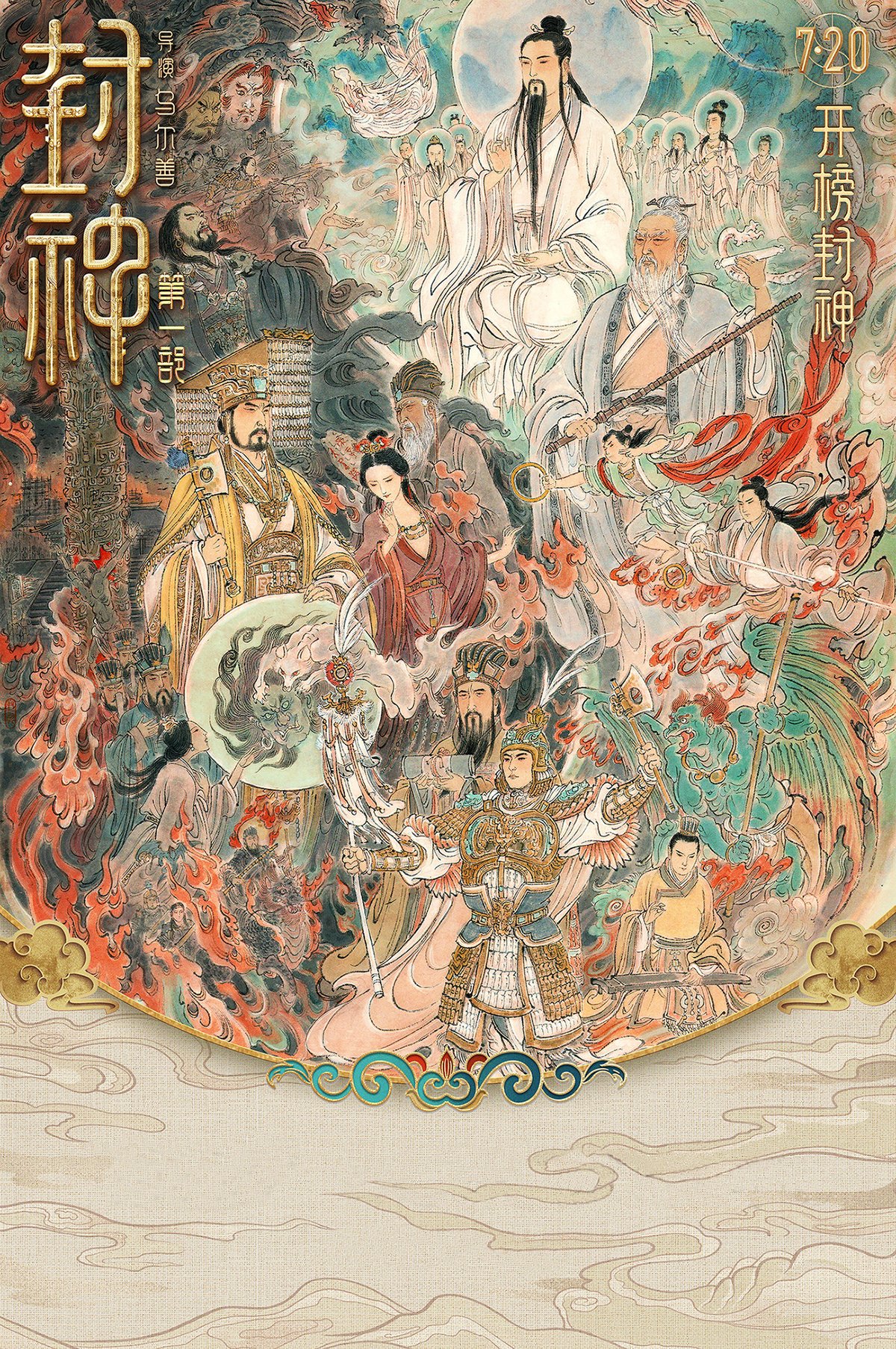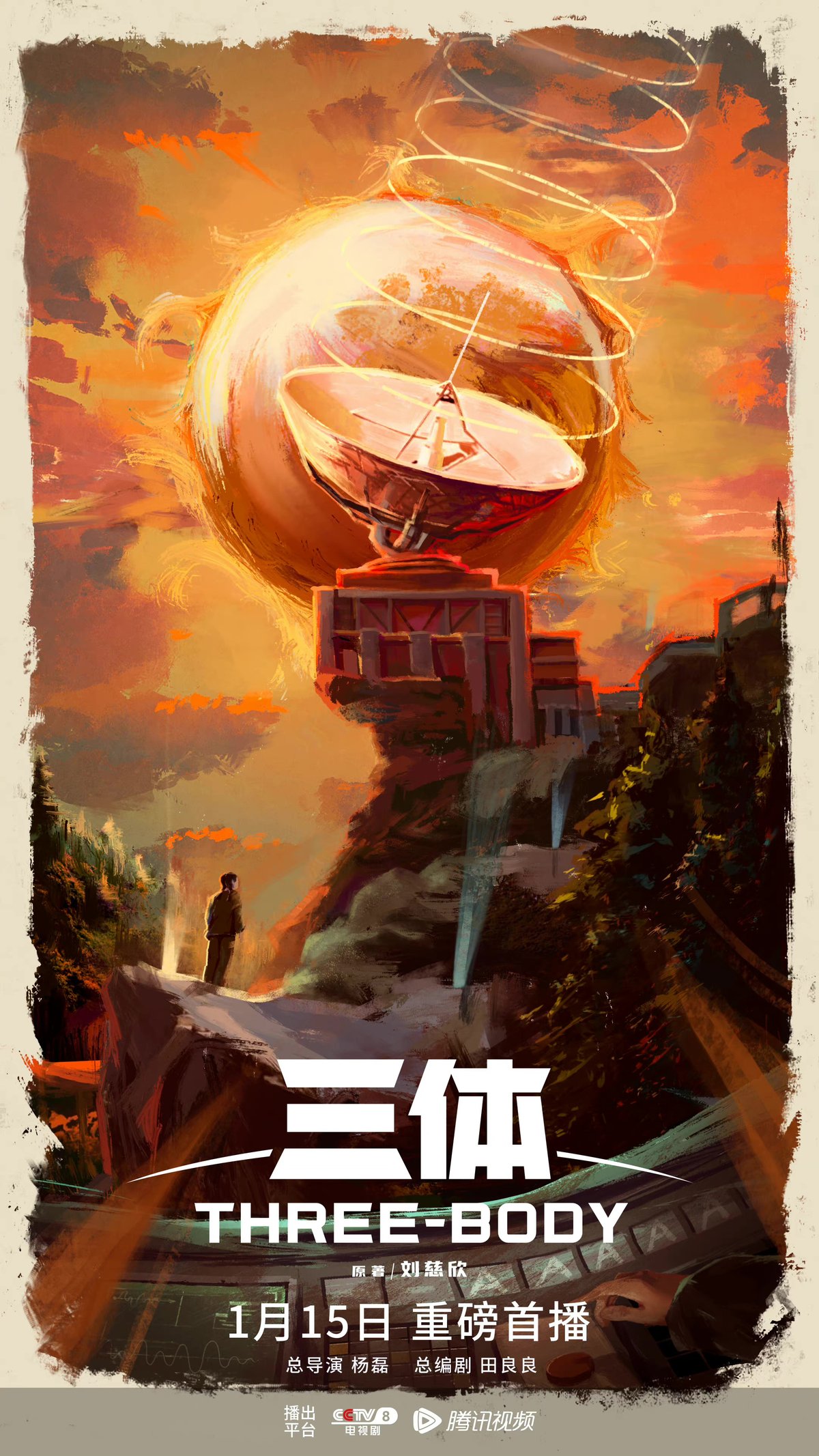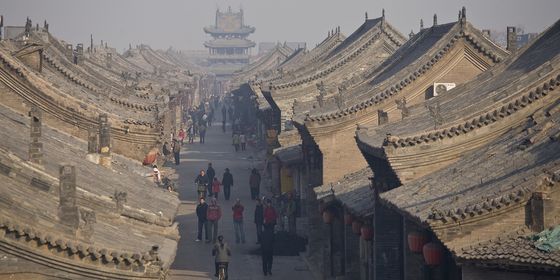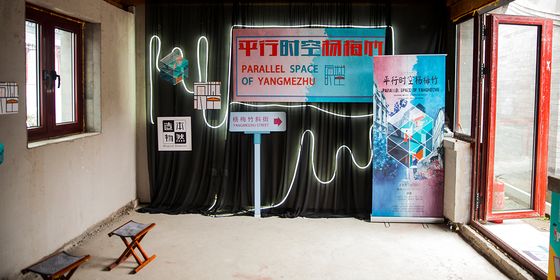From box office success to the rise of crime drama series, here is a roundup of big happenings in Chinese cinema and TV in 2023
The past 12 months have been a year of revival for the Chinese film industry.
As lockdowns became a thing of the past, distributors and moviegoers alike flocked to the cinemas once again. A total of 612 movies were released in cinemas across the country this year, marking a 62 percent increase compared to 2022, according to box office tracker Dengta Data. On November 13, the combined box office of these films surpassed the 50-billion-yuan mark for the first time since 2019.
Here are some of the biggest trends in Chinese TV and movies this year:
Rise in cultural confidence
Domestic productions have significantly contributed to this year’s box office earnings, accounting for 83 percent of the total 53.3 billion. The eleven highest-grossing films of the year so far are all local titles. They didn’t just make money: The eighth highest-grossing movie worldwide this year, The Wandering Earth 2 became the best-rated Chinese-language science fiction film of all time on the popular review platform Douban, receiving an average of 8.3 out of 10 from viewers.
This year also saw quite a few lucrative, highly-rated films that are intricately connected to Chinese mythology and imperial history. The box office champion of the year is Fifth-Generation auteur Zhang Yimou’s Full River Red, a suspense comedy that revolves around the fallout between the manipulative Song dynasty (960 — 1279) chancellor Qin Hui (秦桧) and patriotic warrior Yue Fei (岳飞). Creation of the Gods I: Kingdom of Storms, which earned 2.63 billion yuan and a 7.8 score on Douban, is an action-fantasy retelling of a sixteenth-century “gods and demons” novel of the same name, while Chang’an, an animated historical drama that chronicles the rise and fall of the Tang dynasty (618 — 907) through the poet Gao Shi’s (高适) story, became a surprise summer hit with a 1.82 billion yuan taking and an impressive 8.3 score.
Advances in animation
Earlier this year, Deep Sea, a fantasy animation about a young girl on an underwater odyssey, was praised for its visually striking and innovative animation style but criticized for its haphazard story. The opposite is true for Chang’an. Although the 3D animation’s character modeling has been deemed ugly by some, audiences also hailed the film’s engrossing story that features an ambitious crossover of famous poets and their works. One Douban user called it “a new epic in Chinese animation.” Both films are among the 33 eligible entries for the Best Animated Feature category at the 2024 Oscars, with the final nominations set to be announced on January 23.
One animated project that successfully balances strong scripts and quality visuals is the anthology TV series Yao-Chinese Folktales. While its eight episodes with different directors and animation techniques are of varied quality, the series is received enthusiastically overall and currently boasts a high score of 8.7 on Douban. Besides the stories that tap into Chinese literary sources such as Journey to the West and Strange Tales from a Chinese Studio, fans appreciated the traditional Chinese-style 2D animation that is, as one popular comment on Douban put it, “not influenced by American and Japanese styles.”
More releases (including foreign ones)
Several films by big-name auteurs that were long completed finally obtained the public screening permit (colloquially known as the “dragon seal”) necessary to make it into cinemas. Besides Wuershan’s Creation of the Gods, these titles include Zhang Yimou’s Under the Light and Cao Baoping’s Across the Furious Sea which were originally set to release in 2020 and 2021, respectively. Both films are crime thrillers that touch upon themes often deemed sensitive such as political corruption and familial violence.
More foreign films have also become available to Chinese audiences this year. In February, Disney and Marvel’s superhero blockbusters finally returned to China after a hiatus of three and a half years—which many have called an “unofficial ban”—with theatrical releases of Black Panther: Wakanda Forever and Ant-Man and the Wasp: Quantumania. So far 88 foreign movies have been imported in 2023, the highest amount since 2019’s 136 movies.
Although Battle of Shangganling, a historical TV series about the 1952 eponymous battle during the Korean War (1950 – 53), was expected to air on November 13, it was postponed quietly and indefinitely ahead of President Xi Jinping’s visit to the US. While domestic patriotic productions benefited from less international exchange during the pandemic and industry protections that kept imported films to a limited number, audience members seem to have turned away from these films in 2023. The latest high-budget, star-studded Korean War blockbuster released during the National Day holiday, Chen Kaige’s The Volunteers: To the War, earned 841 million yuan, a disappointing sum compared to previous similar offerings. Although it’s the first installment of a trilogy, viewers speculate that the following two films won’t come out any time soon or will be released on streaming platforms rather than in cinemas, given their potential underperformance and the improving China-US relations.
Moreover, Bona Film Group, the producer of both the TV series and the trilogy, recently found itself in hot water. Netizens weren’t happy that the film conglomerate didn’t donate to relief efforts following the deadly earthquake that hit Gansu province on December 18. The fact that the company makes its fortune through patriotic productions such as The Battle at Lake Changjin (2021)—the most lucrative Chinese film of all time with a staggering 5.7 billion yuan box office—only made the matter worse in the public eye.
While China-US relations seem to be improving, Chinese audiences’ views on Southeast Asian countries have become increasingly negative. Part of the reason can be attributed to the emergence of several new crime thrillers set in the region. Movies like Lost in the Stars, No More Bets, Tainted Love, Last Suspect, The Invisible Guest, and Wolf Hiding tell stories of how unsuspecting Chinese citizens get embroiled in various frauds, scams, and even organ theft and trafficking organizations in the tropical region. Although the movies all scored below 7 on Douban, No More Bets and Lost in the Stars were the third and fourth highest-grossing films of the year in China. While some viewers argue that the movies are justified in their depiction of the region since many real-life crime incidents there have affected Chinese tourists, others have also pointed out the possibility that setting crime movies outside the border makes them easier to pass through censorship.
Legal battles
Last December, the Hainan Island International Film Festival heralded the arrival of a new normal when its fourth edition became the first event of its kind to resume in-person screenings to the public. However, the festival was soon embroiled in a scandal. Winners of previous editions claimed that the festival had never paid the promised prize money, ranging from 225,000 to over 1 million yuan, thus delaying the production process of their films. Several former staff members of the festival also reportedly revealed that their salaries haven’t been paid.
Earlier this month, producers of three film projects released a joint statement, along with a verdict by the Beijing Arbitration Commission that ruled in their favor. Although their claim has been legally upheld, the producers have not yet received compensation because the original legal entity responsible for the festival has become a shell company. The Hainan government now owns the new company that has taken charge, retaining the festival’s name but launching a new website and social media accounts. These new developments only came to broader public attention when the event’s fifth edition was abruptly announced just eight days before its scheduled run from December 16 to 22.
Rise in crime TV
While realist dramas such as Minning Town (2021) and A Lifelong Journey (2022) were popular on Chinese TV and streaming platforms in the past few years, the crime genre has been all the rage in 2023.
Boasting a high score of 8.5 on Douban, The Knockout follows a police officer and a gang boss on a 20-year-long tussle in the corruption-ridden fictional city of Jinghai. Thanks to its release just before the Lunar New Year holiday in January, the gritty drama, produced by the Chinese livestreaming platform iQIYI, became the most-watched TV series on CCTV-8, the television drama channel of the state-owned broadcast network, in the past 9 years.
Even more critically acclaimed, however, is The Long Season, produced by another streaming giant Tencent. The show has become the highest-rated domestic live-action TV since 2015 with a remarkable score of 9.4 on Douban. Directed by Xin Shuang, who rose to fame in 2020 with the highly-acclaimed crime series The Bad Kids, the suspense drama tells the tragic stories of several families intertwined with an unsolved brutal murder in the country’s Northeastern rustbelt. One short review with over 22,000 likes reads, “Let us all come and learn how to make Chinese TV dramas!”
This year also saw the first live-action adaptation of Chinese science fiction author Liu Cixin’s Three Body Problem trilogy. Tencent’s 30-episode Three-Body series has scored 8.7 on Douban and is praised for its great fidelity to Liu’s first novel—a quality that book fans found sorely lacking in Bilibili’s animated adaptation series from last December. Meanwhile, Netflix has finally announced that its much-anticipated live-action adaptation of the series will be released on March 21, 2024.
The year is coming to an end with the return of Hong Kong auteur Wong Kar-wai and his first TV series. Wong’s first project since his last film The Grandmaster (2013), Blossoms Shanghai is a 30-episode series set to premiere on Tencent Video and CCTV 8 on December 27. Based on Jin Yucheng’s Mao Dun Literature Prize-winning novel Blossoms, the show traces the journey of Ah Bao, a young opportunist aspiring to become a millionaire in the dazzling and dangerous metropolis of 1990s Shanghai—the city where Wong was born. While it’s not yet clear whether Wong himself directed all episodes, fans around the globe are already brimming with excitement over the prospect of 25 hours of new work from the acclaimed director, known for classics like In the Mood for Love (2000).





